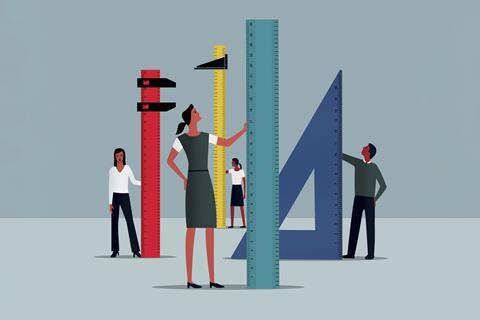No, you can’t measure how good a mentor is based solely on their gender

Update, 21 Dec: The Nature Communications paper discussed in this article has now been retracted after the authors decided that criticism about the link they had drawn between co-authorship and mentoring was valid
Nobody’s perfect. If you think you are, I’d suggest your flaw is in your ability to self-reflect. Mentors, however, can guide you a little closer to your ideal version of you, providing you with the support and tools you need to achieve your goals, whatever they may be.
But mentors are imperfect people too. Striving to find ways that could make the support they provide more effective is therefore a worthwhile mission. Unfortunately, while a paper recently published in Nature Communications (DOI: 10.1038/s41467-020-19723-8) appears to be motivated by this aim, it dramatically misses the target.
But mentors are imperfect people too. Striving to find ways that could make the support they provide more effective is therefore a worthwhile mission. Unfortunately, while a paper recently published in Nature Communications appears to be motivated by this aim, it dramatically misses the target.1
The study looked at author lists of scientific papers to identify three million mentor-protégé pairs – defined as a junior and senior scientist who worked on the same paper. By looking at the citation counts of the ‘protégés’, the researchers performing the study have drawn some conclusions about how successful that ‘mentoring’ relationship was. If you think that sounds questionable even from that brief description, you’re not alone – threads criticising the paper abound on Twitter. Even the peer review reports, available in the paper’s supplementary information, show that most of the reviewers had serious concerns with both the methodology used in the study and the conclusions drawn.
And those conclusions are astonishing. ‘Female protégés who remain in academia reap more benefits when mentored by males rather than equally-impactful females’; ‘mentors benefit more when working with male protégés … especially if the mentor is female’. If this really was true, then I suppose that from now on women should isolate themselves in a corner of the lab to avoid hindering the work of others. Unless a generous senior man offers to help them, that is.
This stunning piece of sexism aside, you have to question whether a study that generalises across millions of mentoring relationships could have produced any useful results. If it looked at the effectiveness of different mentoring techniques, then perhaps it could have guided best practices. But the personal nature of mentoring makes it meaningless to generalise how successful a mentoring relationship is based solely on a broad categorisation of the people involved.
Characteristics like gender, race, sexuality and health status affect how we experience life, often because they affect how we are treated by others (even if they shouldn’t). But they don’t define how skilled we are. A female mentee might find it valuable to seek out a female mentor who can share their experience of the career challenges they faced because of their gender. Or they might not – after all, not all of a woman’s problems are gender-related.
In any case, the effectiveness of the mentoring experience will depend on the relationship formed between mentor and mentee – whether they have complementary personalities, shared expectations, appropriate skills, and whether they trust each other. If you think these dimensions can be measured by simply looking at the genders of the people in the relationship then I think we’ve found your imperfection.
References
B AlShebli, K Makovi and T Rahwan, Nature Commuications, 2020, 11, 5855 (DOI: 10.1038/s41467-020-19723-8)












No comments yet